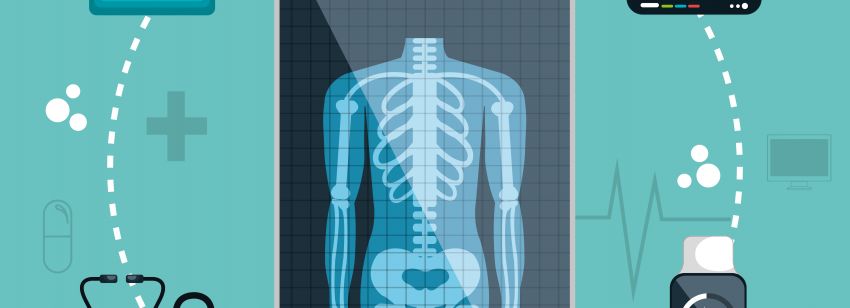Digital health tools impact grows! – and predicts significant cost savings potential
The study showed potential cost savings of roughly $7 billion a year in U.S. healthcare spending. IQVIA examined health apps and wearables (e.g. digital straps or smartwatches) in five key areas for the study: diabetes prevention, diabetes care, asthma, cardiac rehabilitation and pulmonary rehabilitation. The promising future of digital health tools is underpinned by the investment decisions of various capital investors: the investment volume amounts to $4.7 billion in the first three quarters of 2017, which is more than the total volume of last year.
In addition, the medical benefit within the evidence based medicine is given, according to IQVIA. At present, almost 900 clinical trials are being conducted which involve the usage of digital health tools – 540 of them in the U.S. The highest evidence levels were recorded in the areas of diabetes, depression and anxiety. Most of the trials are sponsored by patient care groups and not by pharmaceutical or medtech companies, which is usually the case with drugs or medical devices.
According to IQVIA, the next step in the development is the implementation of digital biomarkers, likewise to biological and additional relevant quantifications, helping to stratify patients by their symptoms. They could also play an important role as surrogate markers in clinical trials. As with all types of apps, there are concerns regarding unpredictable user behavior after downloading – commonly, many downloaded apps are only used a few times, before metaphorically collecting dust on the smartphone’s home screen.
The market access of digital health solutions also requires sufficient evidence. Even “standalone-software”, like digital health apps, can be considered as medical devices and are therefore subject to the same market-access requirements as all other medical devices. Pilot projects of a few health insurances show, that the reimbursement of digital health offers is already possible, as long as the SHI’s perspective is taken into account for market access. SKC considers itself as the leading consulting partner concerning market access, market exploration and development as well as strategic positioning in a digitalized health care sector.
Please click on the following links for more information:
https://www.biopharmadive.com/news/digital-health-impact-apps-iqvia-quintiles-report/510250/
https://www.healthcaredive.com/news/digital-health-could-be-saving-7b-today-report-says/510453/
